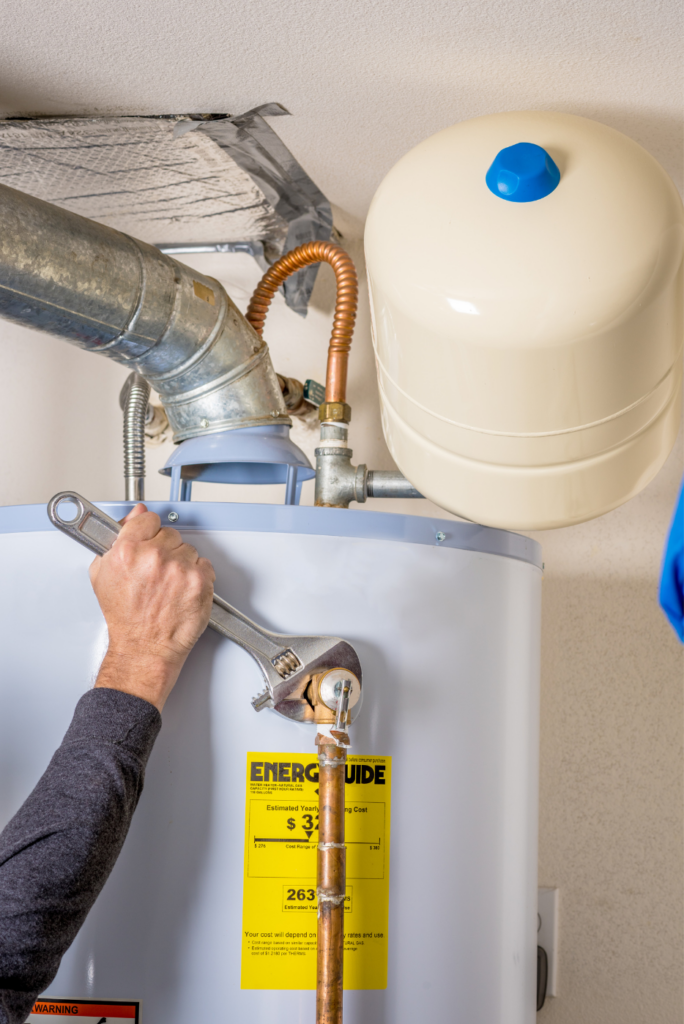Have you been looking for additional info about Common Problems with Your Home Water Heater?

Picture starting your day without your regular warm shower. That already sets an inadequate tone for the rest of your day.
Every home requires a trustworthy water heater, yet just a couple of understand how to take care of one. One easy means to keep your hot water heater in leading form is to check for mistakes consistently and repair them as quickly as they appear.
Bear in mind to turn off your hot water heater prior to smelling around for mistakes. These are the hot water heater faults you are most likely to come across.
Water also warm or too cold
Every hot water heater has a thermostat that identifies exactly how hot the water gets. If the water entering your residence is too warm despite establishing a hassle-free optimum temperature level, your thermostat could be damaged.
On the other hand, too cold water might be due to a fallen short thermostat, a broken circuit, or incorrect gas circulation. For example, if you utilize a gas hot water heater with a busted pilot burner, you would get cold water, even if the thermostat is in best problem. For electrical heating systems, a blown fuse may be the culprit.
Lukewarm water
No matter exactly how high you set the thermostat, you won't get any type of hot water out of a heater well past its prime. A water heater's efficiency may lower with time.
You will certainly likewise get lukewarm water if your pipes have a cross link. This indicates that when you turn on a faucet, hot water from the heater streams in along with regular, cold water. A cross connection is very easy to spot. If your hot water taps still follow closing the water heater shutoffs, you have a cross connection.
Strange sounds
There go to least five kinds of noises you can speak with a water heater, however the most common interpretation is that it's time for the water heater to retire.
First off, you ought to recognize with the typical seems a water heater makes. An electrical heating system might seem different from a gas-powered one.
Standing out or banging noises normally imply there is a piece of debris in your storage tanks, and it's time to cleanse it out. On the other hand, whistling or hissing sounds might just be your shutoffs letting some stress off.
Water leaks
Leakages could originate from pipes, water connections, shutoffs, or in the worst-case scenario, the tank itself. Gradually, water will certainly corrode the storage tank, and also find its way out. If this takes place, you require to replace your water heater immediately.
Nonetheless, before your change your entire storage tank, make sure that all pipelines remain in place and that each valve works flawlessly. If you still require aid identifying a leakage, call your plumber.
Rust-colored water
Rust-colored water indicates among your hot water heater elements is corroded. It could be the anode rod, or the storage tank itself. Your plumber will certainly be able to recognize which it is.
Not nearly enough warm water
Water heaters been available in many dimensions, relying on your warm water demands. If you run out of hot water before every person has actually had a bath, your hot water heater is also tiny for your family size. You must take into consideration setting up a bigger water heater container or opting for a tankless water heater, which takes up much less area and also is more resilient.
Discoloured Water
Corrosion is a significant root cause of unclean or discoloured water. Corrosion within the water container or a stopping working anode pole can trigger this discolouration. The anode rod protects the container from rusting on the inside and must be checked yearly. Without a rod or a correctly working anode rod, the warm water promptly wears away inside the tank. Call a professional water heater specialist to figure out if changing the anode pole will fix the trouble; otherwise, replace your hot water heater.
Verdict
Preferably, your hot water heater can last ten years before you need a change. However, after the 10-year mark, you may experience any one of these faults more routinely. Now, you need to include a brand-new water heater to your spending plan.
How To Troubleshoot 3 Common Water Heater Problems in Twin Cities
The Water Heater Is Leaking
- A leaky cold water inlet valve
- A loose pipe fitting
- A leaky temperature and pressure relief valve
- A corroded anode rod
- A cracked tank
Turn Off Your Water Heater:
- Shut off your gas water heater by turning the gas valve on the unit to the “OFF” position.
- Shut off your electric water by switching its power off at your electrical panel. Look for a two-pole breaker labeled “water heater” and turn it to the “OFF” position. Move the ball valve connected to the water heater to be perpendicular to the piping at a 90° angle.
Look for the Leak:
Depending on whether the water is coming from the tank's top or bottom, you’ll want to look for the leak in different locations.
If the leak comes from the top of the tank, carefully look for water escaping from the cold water inlet valve or loose pipe fittings. Rusted hot and cold water valves can have loose connections with the tank, with water leaking out of them.
https://mspplumbingheatingair.com/blog/how-to-troubleshoot-3-common-water-heater-problems
I hope you enjoyed reading our post about Water Heater Repair and Troubleshooting. Thanks a lot for taking time to read our posting. Remember to set aside a second to distribute this content if you enjoyed reading it. Thanks a lot for going through it.
We're ready, are you?
Comments on “General Heater Challenges Explained”